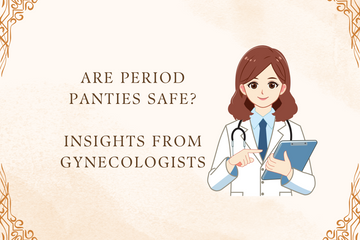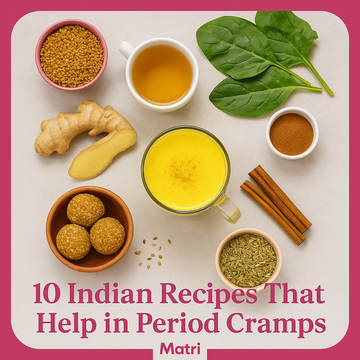Period panties have emerged as a revolutionary product in the world of feminine hygiene products. These reusable undergarments are designed to absorb menstrual blood, offering comfort, convenience, and a sustainable alternative to disposable products. But with their rising popularity, one important question remains for many women—are period panties safe?
This article explores the topic of period panties safety in depth. We break down what they are made of, how they work, and most importantly, what gynecologists and healthcare experts say about their safety, hygiene, and long-term use. Whether you're considering switching to menstrual underwear or just curious about the science behind them, this guide provides all the insights you need.
Understanding What Period Panties Are
Period panties are specialized underwear with built-in layers that absorb menstrual blood. They are designed to be leak-proof, moisture-wicking, and odor-controlling. Unlike pads or tampons, which need to be disposed of after a few hours, period panties can be washed and reused for up to 2–3 years.
These products fall under the category of reusable period underwear, and they’re available in various styles, sizes, and absorbency levels—from light flow to heavy overnight protection.
Understanding how period panties work can give you more confidence in choosing the right menstrual products. Their unique absorbent layers and moisture-wicking technology provide leak-proof protection without sacrificing comfort.
What Do Gynecologists Say About Period Panties?
According to many gynecologists, period panties are generally considered safe when used and cared for correctly. The gynecologist opinion on period panties is positive overall, particularly because they eliminate risks associated with toxic shock syndrome (TSS), which can be linked to tampon misuse.
However, experts do advise that proper hygiene is crucial. Dirty or damp underwear can lead to infections like yeast overgrowth or bacterial vaginosis. This means that wearing the same pair for too long or not washing them thoroughly could introduce menstrual underwear risks, but the product itself is not inherently unsafe.
Gynecologists recommend changing period panties every 8 to 10 hours, depending on your flow, and cleaning them with care to maintain their hygienic quality.
If you’re curious about innovative solutions for menstrual discomfort, check out the Matri Pro Menstrual Pain Relief Device. This cutting-edge tool offers non-invasive relief to complement your period care routine.
Are Period Panties Hygienic?
The short answer is yes, period panties are hygienic, but only if used correctly. These undergarments are made with antimicrobial layers that help prevent the growth of odor-causing bacteria. Most high-quality products also feature breathable fabrics like cotton blends and microfibers that help keep the vaginal area dry.
It is important to wash period panties in cold or lukewarm water with a mild detergent. Avoid bleach and fabric softeners, as they can damage the absorbent layers and reduce the effectiveness of the product. After washing, air drying is preferred over machine drying to preserve the fabric's integrity.
For those using the Matri Gelpad Connecting Cable, it’s important to ensure proper setup and maintenance to maximize the device’s effectiveness during menstruation. Seamless integration makes pain management easier.
Common Myths Around Period Panties Safety
There are several myths surrounding reusable period underwear safety. Some people believe that they may cause infections, trap bacteria, or harm skin sensitivity. In reality, high-quality period panties are made with skin-safe, medical-grade fabrics that are tested for safety and durability.
Another misconception is that they don’t breathe. On the contrary, the best brands focus on breathability and comfort, making them suitable for all-day wear.
Finally, some worry that washing period panties with other clothes is unsanitary. However, after rinsing them thoroughly and washing them in a machine, they are safe to clean with the rest of your laundry.
Tips to Use Period Panties Safely
If you want to make sure your experience with period panties is both comfortable and safe, follow these essential tips:
- Change your period panties every 6 to 10 hours, depending on your flow
- Rinse them immediately after use with cold water
- Wash them with mild, fragrance-free detergent
- Avoid bleach, hot water, and fabric softeners
- Let them air dry fully before reuse
- Always have multiple pairs for rotation and hygiene
Can Period Panties Cause Any Risks?
When used improperly, like any feminine hygiene products, period panties can lead to discomfort or irritation. Wearing them too long, especially on heavy flow days, may result in wetness, odor, or even minor skin rashes. However, these are easily preventable by following hygiene best practices.
There’s also concern about synthetic chemicals in low-quality brands. That’s why it’s important to choose certified, dermatologically tested products. Always read labels and reviews before purchasing.
For those with sensitive skin or allergies, testing a new pair for one day before committing to long-term use is a wise step.
Conclusion
In the eyes of both users and medical experts, the answer to are period panties safe is a confident yes. They are a sustainable, comfortable, and largely safe option when used properly. With the right material, correct hygiene, and regular changing, period panties are just as safe—if not safer—than many disposable alternatives.
Whether you’re looking to reduce waste, cut monthly costs, or just simplify your period routine, reusable period underwear is a reliable option. As with all feminine hygiene products, proper care makes all the difference.
FAQs
1. Are period panties safe to wear all day?
Yes, period panties are safe to wear all day if you choose the correct absorbency for your flow and change them every 8 to 10 hours. Wearing them too long without changing may cause discomfort, so timely replacement is key for safety and hygiene.
2. Can period panties cause infections?
Period panties don’t cause infections when used and cleaned properly. However, if worn too long without changing or if not washed thoroughly, moisture buildup can lead to irritation or bacterial growth. Proper hygiene and regular changes prevent such risks.
3. Are period panties suitable for teenagers?
Yes, they are an excellent option for teenagers. Period panties are easy to wear, non-invasive, and comfortable. They eliminate the need for tampons or pads, making them ideal for young users learning to manage their periods confidently and safely.
4. How should I wash period panties to keep them hygienic?
Rinse used panties in cold water, then wash them with mild detergent on a gentle cycle. Avoid bleach, fabric softeners, or hot water, which can damage absorbent layers. Always air dry them completely before reuse to maintain hygiene and effectiveness.
5. Do gynecologists recommend period panties?
Yes, many gynecologists consider period panties a safe menstrual product. They recommend them as long as users maintain proper hygiene, use the right absorbency, and change them regularly to prevent infections or skin irritation during menstruation.
6. Can I wear period panties overnight?
Yes, overnight period panties are specially designed for longer wear. They offer higher absorbency and extended coverage, making them safe to use for 8 to 10 hours during sleep without leakage or discomfort, provided you choose the right style and size.
7. Is it okay to wash period panties with other clothes?
Yes, after rinsing them thoroughly, period panties can be washed with your regular laundry. Just ensure you use cold water, a mild detergent, and avoid fabric softeners. Proper pre-rinsing ensures hygienic washing with no impact on other garments.
8. Do period panties contain harmful chemicals?
No, reputable brands use safe, toxin-free fabrics. However, it’s important to check product certifications and avoid unverified brands. Opt for period panties that are dermatologically tested and free from PFAS, parabens, and other harmful substances to ensure safety.
9. Will period panties smell if worn for too long?
Yes, if worn beyond their absorbent capacity, period panties may develop odor due to moisture and bacterial buildup. Regularly changing them every 6 to 8 hours and washing them properly prevents any unpleasant smell and keeps you feeling fresh.
10. Are period panties better than pads or tampons?
It depends on your lifestyle and preference. Period panties offer reusable, eco-friendly protection without the discomfort of inserts. Many find them more comfortable and cost-effective. However, their safety is equal to pads and tampons when used correctly.







oaxc04
onmqbo